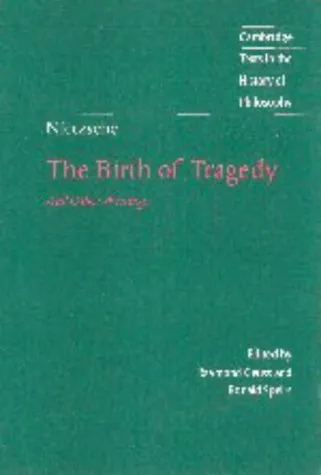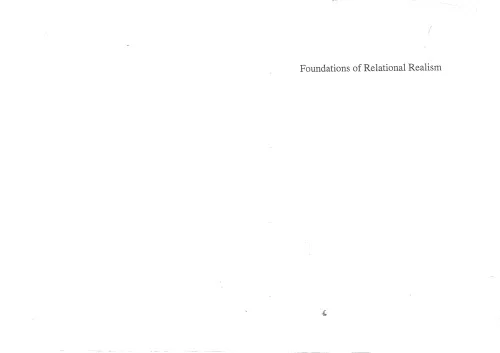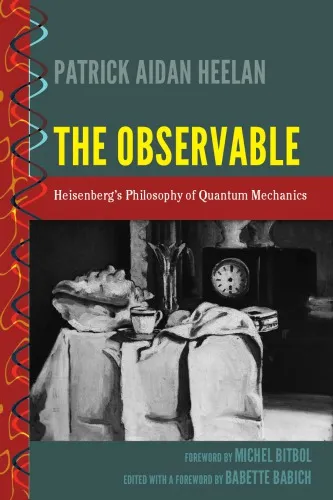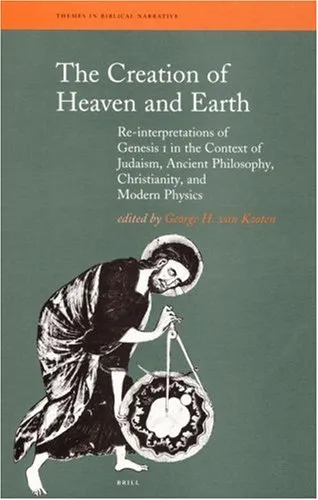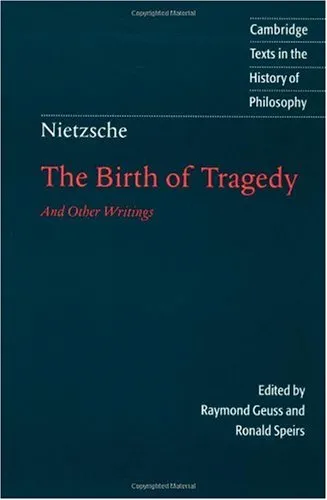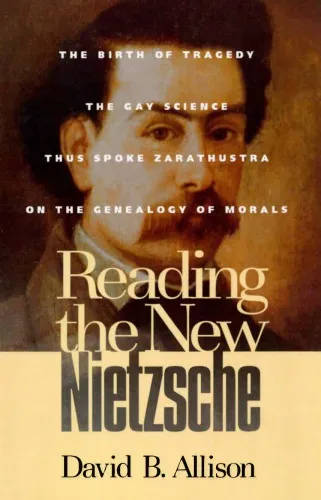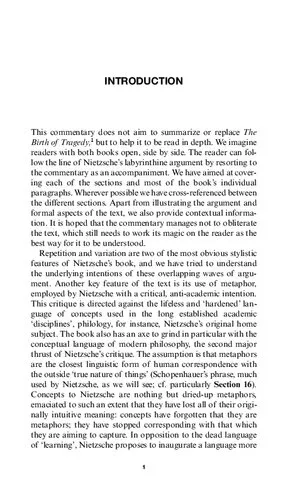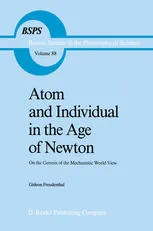Nietzsche: The Birth of Tragedy and Other Writings
4.5
بر اساس نظر کاربران

شما میتونید سوالاتتون در باره کتاب رو از هوش مصنوعیش بعد از ورود بپرسید
هر دانلود یا پرسش از هوش مصنوعی 2 امتیاز لازم دارد، برای بدست آوردن امتیاز رایگان، به صفحه ی راهنمای امتیازات سر بزنید و یک سری کار ارزشمند انجام بدینکتاب های مرتبط:
مقدمهای بر کتاب 'Nietzsche: The Birth of Tragedy and Other Writings'
'Nietzsche: The Birth of Tragedy and Other Writings' یک اثر برجسته فلسفی است که به بررسی عمق فرهنگ و هنر از نگاه فریدریش نیچه میپردازد. این کتاب که دربرگیرنده تفکرات اولیه نیچه است، به نحوی دقیق تراژدیهای یونان باستان و تأثیرات آنها بر فرهنگ مدرن را تحلیل میکند. جمعآوری مقالات و نوشتههای دیگر از نیچه نیز به این کتاب غنا و عمق ویژهای بخشیده است. این نوشتهها نگاهی به دیدگاههای او درباره موسیقی، هنر، فلسفه و فرهنگ غربی دارد.
خلاصهای از کتاب
کتاب 'Nietzsche: The Birth of Tragedy and Other Writings' با مقدمهای از نیچه آغاز میشود که به طور مبسوط به شرح پیشینه تراژدیهای یونانی و تأثیرات Dionysian و Apollonian بر آنها میپردازد. در بخشهای اولیه، نیچه نشان میدهد چگونه این دو عنصر متضاد، به سینرژی هنری و فرهنگی میانجامند که هویت تراژدی واقعی را تعریف میکند. Dionysian نمایانگر احساسات و هیجانات است و Apollonian نشاندهنده نظم و زیبایی. نیچه استدلال میکند که همزیستی این دو عنصر، یک تعادل عالی از هنر و فلسفه ایجاد میکند.
نکات کلیدی
- درک اهمیت عناصر Dionysian و Apollonian در تراژدیها و هنر.
- تحلیل ارتباط میان موسیقی و فلسفه در فرهنگ یونان باستان.
- دیدگاههای نیچه درباره آینده فرهنگ غرب و ارتباط آن با عناصر فرهنگ باستانی.
- بحثهای نیچه درباره 'وضعیت نیهیلیسم' در جامعه مدرن.
نقل قولهای معروف از کتاب
نیچه در این کتاب به زیبایی و دقت فلسفه خود را تبیین میکند. از جمله نقل قولهای برجسته میتوان به این موارد اشاره کرد:
"Without music, life would be a mistake."
"What does not kill me makes me stronger."
چرا این کتاب اهمیت دارد
'Nietzsche: The Birth of Tragedy and Other Writings' به عنوان یکی از آثار بنیادین نیچه درک عمیقی از فلسفه و فرهنگ ارائه میدهد که برای فیلسوفان و علاقهمندان به هنر و ادبیات ضروری است. این اثر نه تنها دیدگاه جدیدی درباره تراژدی و هنر به خواننده میدهد، بلکه به مسائل فلسفی و اجتماعی گستردهتری نیز میپردازد که همچنان در دنیای مدرن اهمیت دارند. انگارههای نیچه درباره جمع تضادهای موجود در هنر و زندگی، نقشه راهی برای پرسشگری درباره طبیعت انسان و توسعه فرهنگی ارائه میدهد.
Introduction to "Nietzsche: The Birth of Tragedy and Other Writings"
Friedrich Nietzsche's "The Birth of Tragedy and Other Writings" is a seminal text that delves deep into the philosophical underpinnings of art, culture, and human existence. As a profound and sometimes controversial thinker, Nietzsche provides invaluable insights into the interplay between the Apollonian and the Dionysian, the two artistic forces that he believes define humanity's cultural development. Accompanied by an incisive commentary from renowned scholars Raymond Geuss and Ronald Speirs, this collection enriches the reader's understanding of Nietzsche's early philosophical journey and its wider implications.
Detailed Summary of the Book
The book commences with Nietzsche's exploration of the duality of existence embodied in the Apollonian and the Dionysian principles. The Apollonian represents order, logic, and beauty, derived from the Greek god Apollo, while the Dionysian embodies chaos, passion, and ecstasy, linked to the god Dionysus. Nietzsche posits that these two forces coalesce to give rise to the 'tragic art,' especially evidenced in ancient Greek tragedy where the fusion of the two engenders both profound beauty and heart-wrenching despair.
Nietzsche further criticizes the cultural milieu of 19th-century Europe, especially the dominance of rationality and the suppression of Dionysian elements which, he argues, leads to a depleted cultural experience. He reflects on the degeneration of music and art in his time, using Richard Wagner as a paragon of how art should seek to restore the balance of Apollonian and Dionysian aspects.
The volume later incorporates writings that expand upon Nietzsche’s foundational ideas, including selections from his other works, letters, and reflections that provide a deeper view of his evolving thought processes and critique of culture and society.
Key Takeaways
- The duality of Apollonian and Dionysian forces is central to understanding art and cultural evolution.
- Nietzsche's criticism of modernity highlights the imbalance between reason and emotion in society.
- Tragedy, as an art form, is a profound expression of human experience, illustrating the coexistence of beauty and suffering.
- The book underscores the importance of embracing both aesthetic and chaotic elements to achieve a richer cultural life.
Famous Quotes from the Book
“Without music, life would be a mistake.”
“We have art in order not to die of the truth.”
“Every great philosophy is a confession of its originator, and a kind of involuntary and unconscious memoir.”
Why This Book Matters
"Nietzsche: The Birth of Tragedy and Other Writings" is critical for several reasons. Firstly, it introduces Nietzsche's core concepts that became foundational to not only his later works but also to existential and post-modern thought. The birth of modern perspectives on art, culture, and the human condition can be traced back to Nietzsche's pioneering ideas.
Moreover, this collection prompts readers to reconsider the role of art and aesthetics in society, urging a balance between reason and spontaneity. Nietzsche's thoughts invite reflection on the ways contemporary culture might resist lifeless rationality in favor of a more robust, Dionysian engagement with the world.
Finally, the commentary by Geuss and Speirs enriches the academic and historical understanding of Nietzsche's work, offering interpretative frameworks that make it accessible to both scholars and casual readers interested in philosophy and cultural criticism.
دانلود رایگان مستقیم
شما میتونید سوالاتتون در باره کتاب رو از هوش مصنوعیش بعد از ورود بپرسید
دسترسی به کتابها از طریق پلتفرمهای قانونی و کتابخانههای عمومی نه تنها از حقوق نویسندگان و ناشران حمایت میکند، بلکه به پایداری فرهنگ کتابخوانی نیز کمک میرساند. پیش از دانلود، لحظهای به بررسی این گزینهها فکر کنید.
این کتاب رو در پلتفرم های دیگه ببینید
WorldCat به شما کمک میکنه تا کتاب ها رو در کتابخانه های سراسر دنیا پیدا کنید
امتیازها، نظرات تخصصی و صحبت ها درباره کتاب را در Goodreads ببینید
کتابهای کمیاب یا دست دوم را در AbeBooks پیدا کنید و بخرید
1420
بازدید4.5
امتیاز0
نظر98%
رضایتنظرات:
4.5
بر اساس 0 نظر کاربران
Questions & Answers
Ask questions about this book or help others by answering
No questions yet. Be the first to ask!
